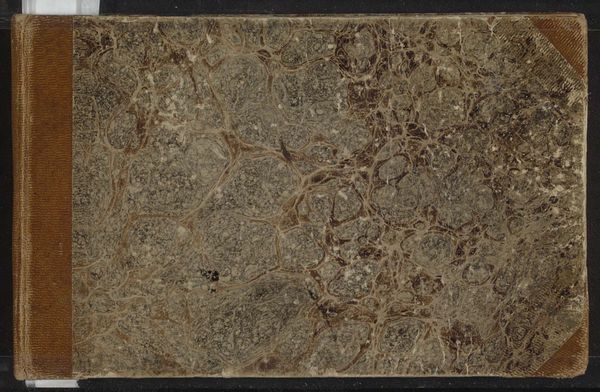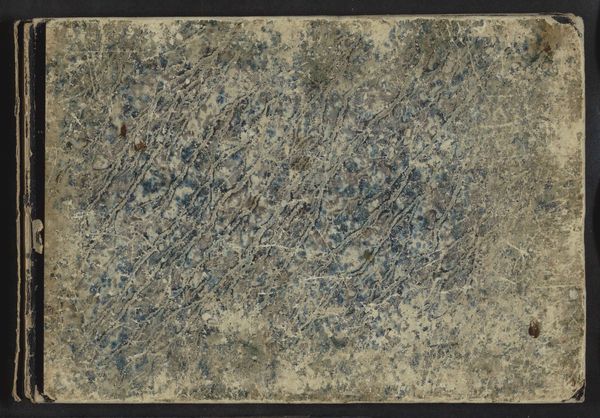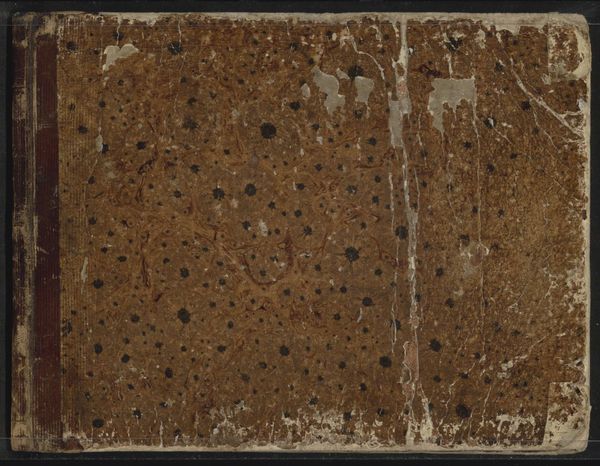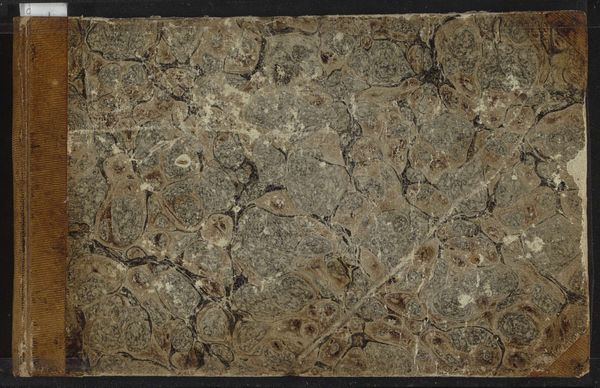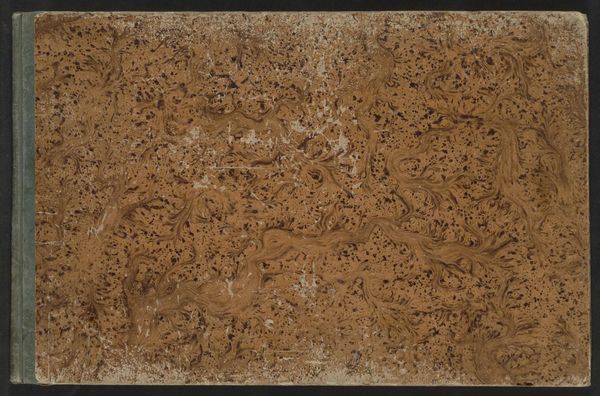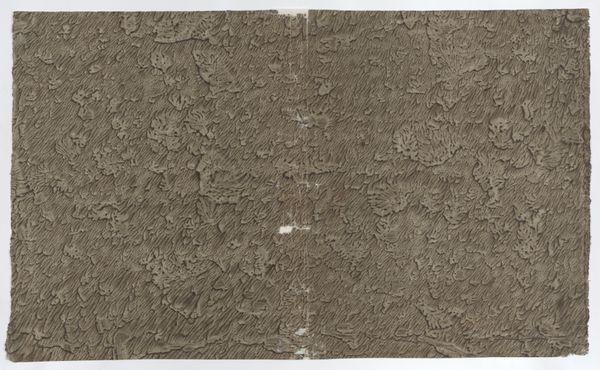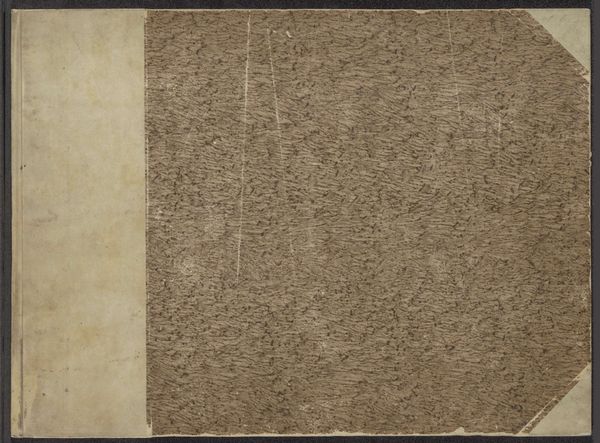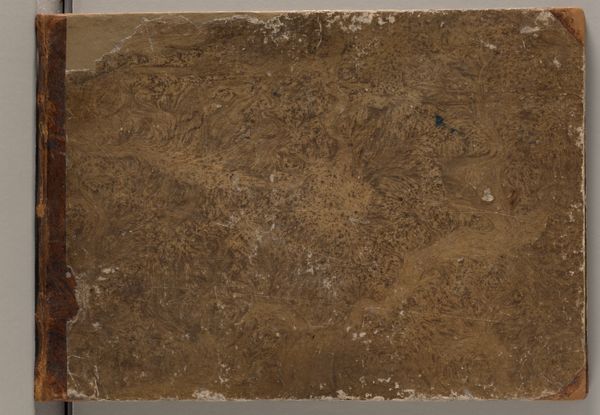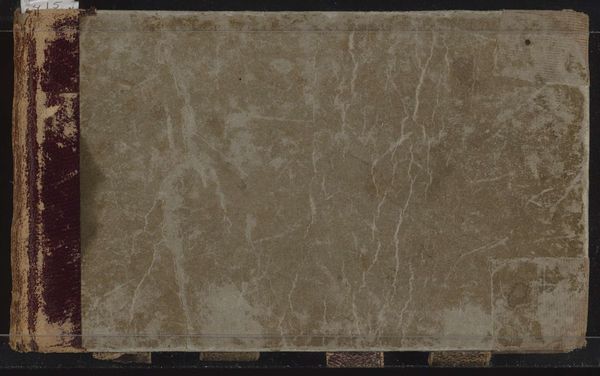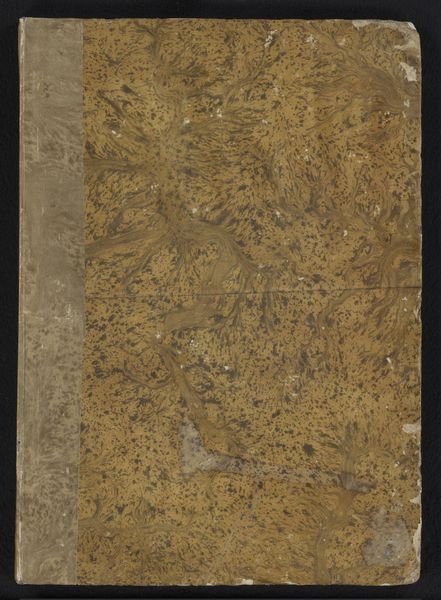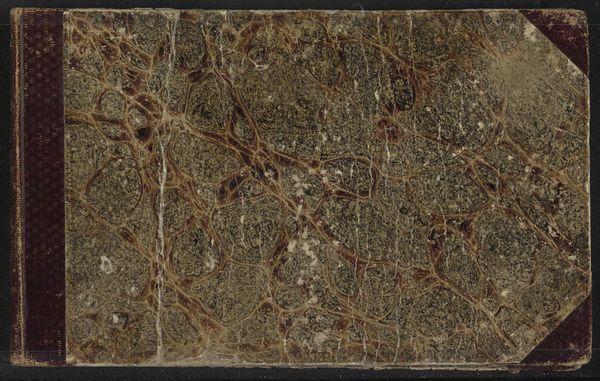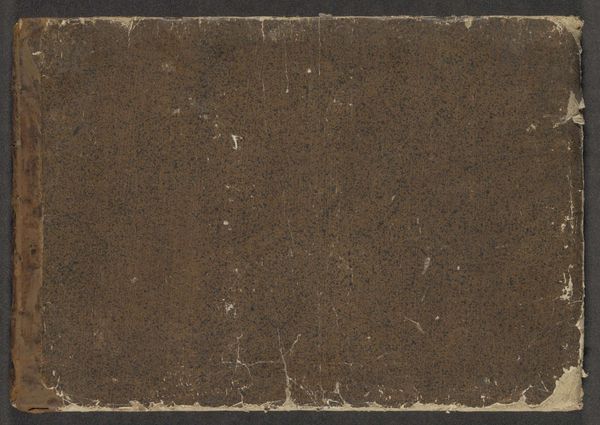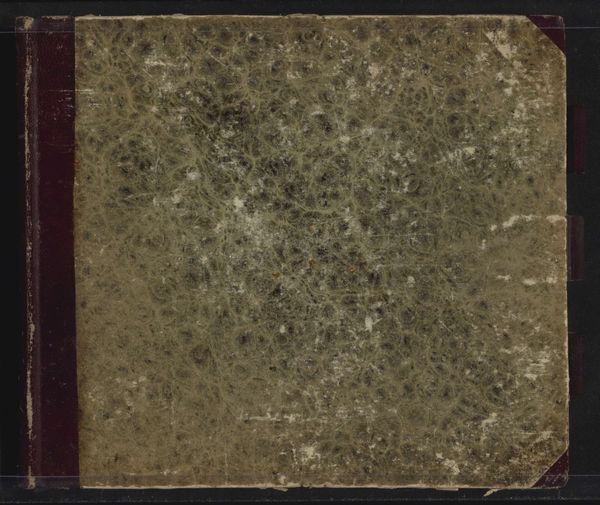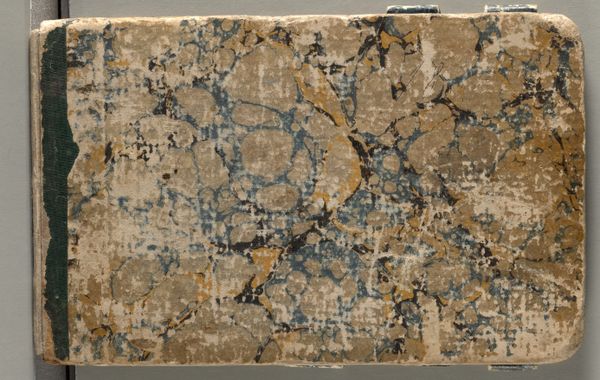
Dimensions: height 231 mm, width 336 mm, thickness 13 mm, width 674 mm
Copyright: Rijks Museum: Open Domain
This sketchbook with 45 pages was made by Johannes Tavenraat in the 19th century. The cover exhibits the symbolic language of marbling, a technique that mimics the patterns of natural marble stone. Throughout history, marble has represented permanence and purity, adorning temples and statues of gods. Its use as a decorative art form goes back to antiquity: marbled paper evokes the same concepts of nature, elegance, and timelessness. We can see this symbolic connection in ancient Roman interiors and Renaissance bookbinding. Just as the swirling patterns in marble suggest the earth’s inner workings, marbling in art hints at the mysteries within. Though the process of marbling is controlled, its results are unique and unpredictable, capturing the viewer's attention, stirring subconscious associations, and engaging the senses. So we see how the artist Tavenraat, working in the 19th century, employed these symbols to give permanence and strength to his work. The cyclical journey of cultural symbols is alive and well!
Comments
No comments
Be the first to comment and join the conversation on the ultimate creative platform.
